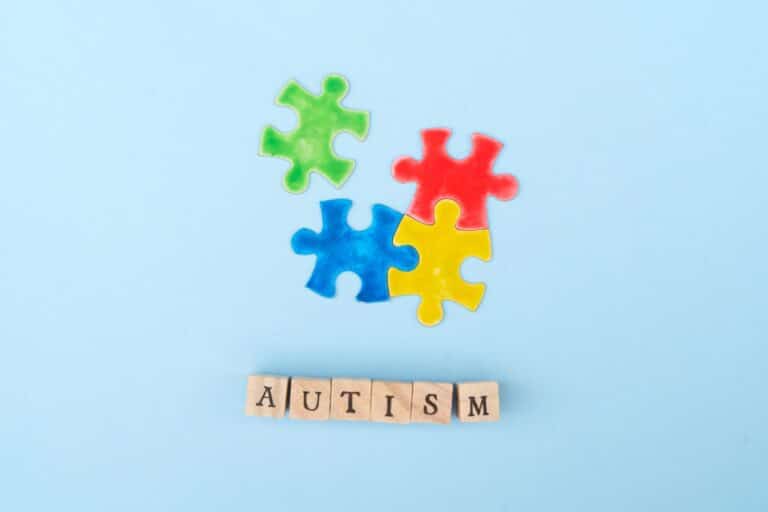About one in three adults don’t get enough sleep. And without sleep, activities of daily life can become more difficult. There are several strategies people use to fall asleep and stay asleep, including medications like Ambien.
Ambien is a prescription oral drug to treat insomnia. It is meant to be taken for a short period of time (1 to 2 weeks). Unfortunately, many people experience Ambien withdrawal symptoms when they stop taking it.
If you or someone you know is experiencing Ambien withdrawal – you’re not alone. But you should read this guide to learn about Ambien use, Ambien withdrawal symptoms, and alternative treatment solutions.
What Is Ambien?
Ambien, also known as zolpidem, is a drug prescribed by a doctor to treat insomnia symptoms. Chronic insomnia is diagnosed when a person cannot fall asleep or stay asleep at least 3 nights a week for 3 months or more.
Ambien is a sedative-hypnotic – a class of drugs that acts on the brain and nervous system. The result is a calming effect that promotes better sleep. The prescribed dosage depends on a person’s age, gender, and any medical conditions. Ambien should not be taken unless prescribed by a doctor.
Most prescriptions are for about 1 to 2 weeks. After that, a person could start experiencing Ambien withdrawal symptoms.
Ambien Withdrawal Symptoms
Ambien withdrawal symptoms are more common among individuals taking a large dose of Ambien or taking it longer than the prescribed amount of time. This is because the body becomes used to having Ambien in the system and reacts negatively when it’s gone.
Here are some of the symptoms of Ambien withdrawal:
- Anxiety
- Mood swings
- Irritability
- Cravings for Ambien
- Sweating
- Tremors
- Fatigue
- Nausea or vomiting
- Abdominal cramps or discomfort
- Uncontrolled crying or depression
- Flushing
- Panic attacks
- Rapid heart rate and breathing
- Rebound insomnia
In rare cases, individuals with Ambien withdrawal experience seizures. Therefore, it’s important to know the risks of withdrawal symptoms before starting a treatment regimen.
If you are taking Ambien, your doctor may recommend slowly lowering the dose instead of stopping right away. This method may help prevent withdrawal symptoms. Some people experience trouble sleeping after they stop taking Ambien (rebound insomnia), but it usually lasts only 1 to 2 nights.
Ambien Withdrawal Timeline
Ambien withdrawal length varies from person to person. For people taking a small dose over a short period of time, the severe withdrawal symptoms may only last 3 to 5 days. However, the psychological symptoms of withdrawal can last up to 2 weeks.
For people taking larger doses over a longer period of time, withdrawal symptoms could last more than 2 weeks. When a person takes larger doses of Ambien, they can build up a tolerance to the medication. This means that they feel they have to take Ambien to feel normal or that they have to continue to take larger and larger doses to get the same effects.
Ambien comes in an extended-release version and a non-extended release version. The extended-release is a higher dose that is released over a period of time. The non-extended release version is a lower dose with a single, one-time effect.
People taking the extended-release version may abuse the medication in a way that stops the medical from releasing slowly. Instead, the larger dose takes effect right away. This situation is more likely to cause intense withdrawal symptoms when the person stops taking the medication. It can also lead to a longer period of time with withdrawal symptoms.
Ambien withdrawal may also last longer if a person took other drugs or drank alcohol while also taking Ambien. Other substances can increase the effects of Ambien and sometimes lead to a euphoric or “high” feeling. Individuals taking other drugs or drinking alcohol with Ambien are more likely to have severe withdrawal symptoms.
If your Ambien withdrawal symptoms get worse or last more than 7 days, talk to your doctor. There are effective treatment programs to help.
Getting Help for Addiction
If you are struggling with an addiction to alcohol or drugs, there are programs in your area to help you. For example, detox and rehab facilities can offer effective solutions to misuse or addiction. In addition, if someone you know is struggling with an addiction, you can help them find a treatment program.
If you are having a hard time stopping Ambien or another drug, seek help. Ambien use disorder can be treated. Medically-assisted detox for Ambien may help you with symptoms of Ambien withdrawal. Rehab may also be a solution for identifying the underlying causes of misuse.
Rehab may include inpatient or outpatient care. Inpatient treatment is when the individual lives at the rehab facility under supervision from experienced doctors and counselors. Outpatient care means the individual lives at home and visits the facility for therapy or medical visits.
Ambien Withdrawal Help
Talk to your doctor about getting Ambien withdrawal help. They may recommend over-the-counter sleep aids like melatonin or herbal remedies like tea. In more serious cases, they may recommend a medically-assisted detox or rehab.
If you are taking other recreational drugs with Ambien, a doctor is more likely to recommend a rehab facility to address unhealthy substance use. A doctor may also recommend ongoing psychotherapy to address triggers and cues that could be making your Ambien use worse.
Do not feel ashamed if you need help stopping Ambien or are worried about the withdrawal symptoms. There are treatment programs designed to help you so that you can return to a healthier lifestyle.
Get Help Today
You don’t have to suffer from addiction or Ambien withdrawal symptoms alone. Southern California Sunrise Recovery Center has facilities in Laguna Niguel, Mission Viejo, and Orange County. We help individuals with alcohol and drug addictions get the support they need to succeed.Don’t wait to reach out for help. You can change your life today. Contact us online to get started or to ask any questions you may have. We look forward to being a part of your journey toward a better life.






